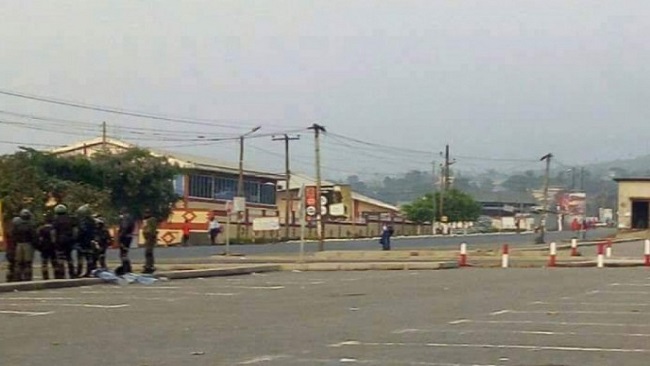Ghost town gathers steam in West Cameroon
An anti-Francophone rebellion is brewing in Southern Cameroons, where the embattled government of the 83 year-old Paul Biya continues to bring in new anti Anglophone measures and militarizing the English regions of the country. Now, even elected local officials are joining the fray in a seemingly random but increasingly prevalent wave of civil disobedience in West Cameroon.
Working under the direct supervision of the Cameroon Anglophone Civil Society Consortium and on the theory of strength in numbers, the Anglophone teachers and lawyers have paralyzed business and academic activities in British Southern Cameroons. Southern Cameroons have observed a successful civil disobedience campaign for three days and there are speculations that the Consortium intends to step up the fight against Anglophone marginalization.
Furious at the success of the ghost town operations, the chairman of the so-called Ad Hoc Committee announced late yesterday that dialogue with the Anglophone leaders has come to an end. Prof. Ghogomu Mingo Paul in his statement launched a scathing attack on members of the Cameroon Anglophone Civil Society.
Anglophone lawyers, teachers’ trade unions and campaigners have tried to get the Biya Francophone Beti Ewondo government to implement a two state federation that will guarantee political and economic freedom to West Cameroonians. However, the regime in Yaounde has remained defiant and is reportedly planning to suspend thousands of Anglophone civil servants while maintaining a huge military presence in the English regions.
State buildings are empty ever since Monday the 16th of January 2017 and municipalities have stalled in ordering strikers back to work. The Southern Cameroon strikes are becoming so frequent that everyone from council workers to motor taxis, medical doctors to buy’am sell’am, has walked off the job at some point. Ghost town operations today were again successful following an appeal from the Consortium that West Cameroonians should remain calm and discipline.
By Soter Tarh Agbaw-Ebai




